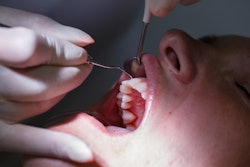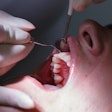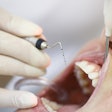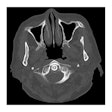Though periodontitis was associated with a heightened risk of cognitive decline, it was not linked to the risk of dementia, according to a new study published on May 15 in the Journal of Clinical Periodontology.
Moderate periodontitis was linked to lower overall cognition, verbal fluency, and immediate recall, the authors wrote.
“As periodontitis has established and accessible preventive and therapeutic modalities, these findings open new avenues in relation to cognitive decline prevention,” wrote the authors, led by Dr. Sam Asher of the Institute of Dentistry at the University of Eastern Finland.
Studies have revealed an association between tooth loss and dementia, but similar findings for gum disease have been inconclusive. Therefore, to explore this correlation, a cross-sectional study and longitudinal analyses were conducted using data from the population-based Health 2000 and the follow-up Health 2011. In the cross-sectional study, 4,046 adults were included, and 2,769 adults were in the analyses, according to the study.
Periodontal health was assessed via multiple clinical and radiographic markers, and severity was based on periodontal pocket depths. Cognitive tests were administered at baseline and follow-up, and dementia diagnoses until 2015 were obtained from health registers.
Moderate gum disease was linked to lower overall cognition (odds ratio [OR], 1.19; 1.02 to 1.40), verbal fluency (OR, 1.16; 1 to 1.35), and immediate recall (OR, 1.22; 1.04 to 1.42), the authors wrote.
Furthermore, periodontal pocket depths were linked to lower overall cognition (OR, 1.22; 1.04 to 1.43), verbal fluency (OR, 1.18; 1.02 to 1.38), bleeding on probing with verbal fluency (OR, 1.26; 1.07 to 1.48), and immediate recall (OR, 1.22; 1.02 to 1.45), they wrote.
Over time, moderate periodontitis correlated with the risk of decline in immediate recall (OR, 1.29; 1.04 to 1.60), severe periodontitis with verbal fluency (OR, 1.46; 1.01 to 2.11), periodontal pocket depths with immediate recall (OR, 1.23; 1 to 1.53), and bleeding on probing with verbal fluency (OR, 1.31; 1.05 to 1.63).
However, the risk of incident dementia was not associated with poor periodontal health, the authors wrote.
Nevertheless, the study had limitations, including that it did not explore factors, including oral habits, diet, or use of dental health services, they wrote.
Poor gum health may be associated with a reduction in cognitive function, but there was no correlation with the risk of dementia.
“Although periodontal inflammation may adversely impact cognition, its impact may be limited and not severe enough to lead to dementia,” Asher and colleagues wrote.




















